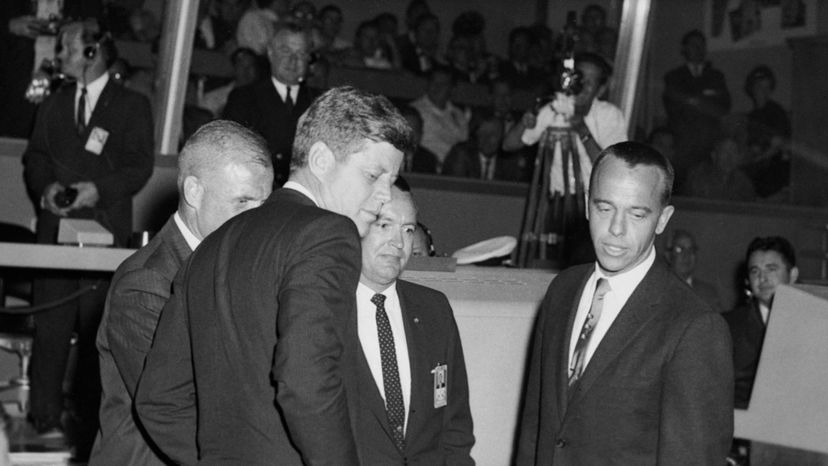Who Decides What NASA Does?

NASA is an independent civilian space agency under the executive branch, created by Congress to help execute policy or provide special services (other independent agencies include the Central Intelligence Agency, the Environmental Protection Agency and the National Science Foundation). Although NASA is not a cabinet-level organization like the Department of Defense, its administrator gets nominated by the president and must be confirmed by the Senate.
NASA's agenda often has been set by U.S. presidents. In 1961, for example, President John F. Kennedy decided to focus NASA's goal on putting humans on the moon within a decade — a goal that the agency achieved with a year to spare. In 1972, President Richard M. Nixon directed NASA to develop the space shuttle program [source: Garber].
Advertisement
In 1984, President Ronald Reagan called on NASA to develop a space station within a decade [source: Rossiter]. His successor, George H.W. Bush, in 1989 proposed sending humans to Mars [source: Weinraub]. President George W. Bush in the 2000s launched the Constellation program, which aimed to develop a new space vehicle and return to the moon by 2020, a project envisioned as a prelude to a future Mars mission [source: Wall].
Presidents also have undone their predecessors' plans. President Barack Obama in 2010 cancelled Constellation, after a presidential commission concluded that it was too far behind schedule and cost too much. Obama decided to abandon the moon return and instead send astronauts to a near-Earth asteroid by 2025, and then to Mars in the mid-2030s. To that end, NASA continued to work on a manned spacecraft, Orion, that had been part of the Constellation program, as well as a massive, powerful rocket, the Space Launch System, or SLS. A robotic version of Orion was launched into space in 2014 [source: Wall].
Under Obama's successor, Donald Trump, the moon return is again on the agenda, and NASA is contemplating selling naming rights to space missions to companies. Trump also wants to end direct federal support of the International Space Station (ISS) by 2025 in hopes that private space companies will take over [source: Dean]. Space, it seems, is ripe for commercialization.